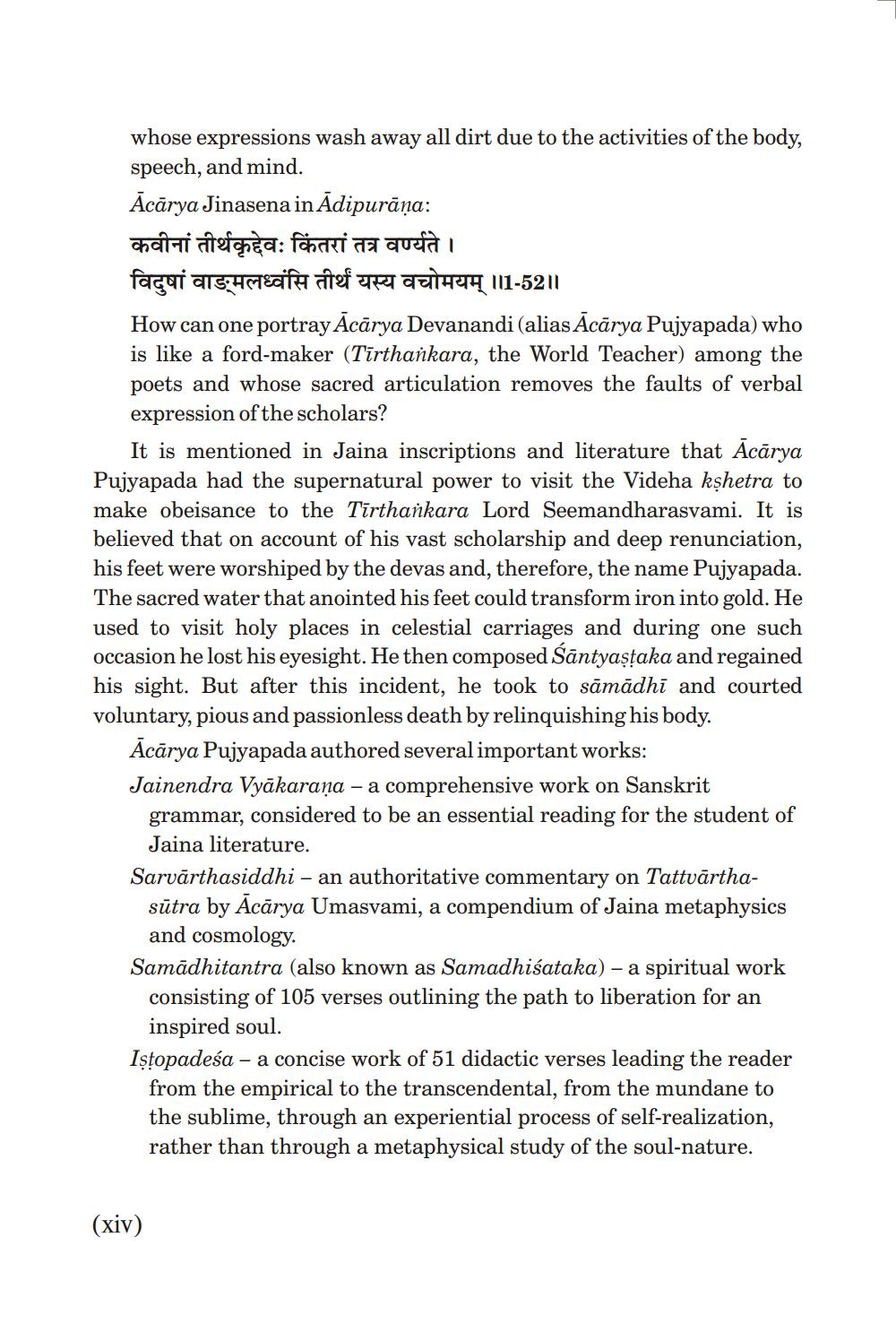________________
whose expressions wash away all dirt due to the activities of the body, speech, and mind.
Acārya Jinasena in Ādipurāṇa:
कवीनां तीर्थकृद्देवः किंतरां तत्र वर्ण्यते ।
fagui a13-4mεafu def aa aaì404 111-52|||
How can one portray Acārya Devanandi (alias Acārya Pujyapada) who is like a ford-maker (Tirthankara, the World Teacher) among the poets and whose sacred articulation removes the faults of verbal expression of the scholars?
It is mentioned in Jaina inscriptions and literature that Acārya Pujyapada had the supernatural power to visit the Videha kshetra to make obeisance to the Tirthankara Lord Seemandharasvami. It is believed that on account of his vast scholarship and deep renunciation, his feet were worshiped by the devas and, therefore, the name Pujyapada. The sacred water that anointed his feet could transform iron into gold. He used to visit holy places in celestial carriages and during one such occasion he lost his eyesight. He then composed Santyaṣṭaka and regained his sight. But after this incident, he took to sāmādhī and courted voluntary, pious and passionless death by relinquishing his body.
Acārya Pujyapada authored several important works:
Jainendra Vyakarana - a comprehensive work on Sanskrit
grammar, considered to be an essential reading for the student of Jaina literature.
Sarvarthasiddhi – an authoritative commentary on Tattvärthasūtra by Acārya Umasvami, a compendium of Jaina metaphysics and cosmology.
Samadhitantra (also known as Samadhisataka) – a spiritual work consisting of 105 verses outlining the path to liberation for an inspired soul.
Iṣṭopadeśa - a concise work of 51 didactic verses leading the reader from the empirical to the transcendental, from the mundane to the sublime, through an experiential process of self-realization, rather than through a metaphysical study of the soul-nature.
(xiv)




